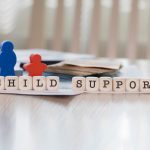How does mental health impact family law cases?
Mental health concerns may be particularly impactful in family law because this is the area of law that guides married couples through their divorce and unmarried parents through child custody and child support battles when they separate. Ending a marriage or a relationship may cause any person, even if they do not suffer from a diagnosed mental disorder, to become distressed, depressed, or abnormally anxious for a significant period of time. If you add this stressor onto someone’s plate when they already suffer from a mental illness, they may react in a range of ways, some of which will negatively impact their case either temporarily or permanently. For instance, a clinically depressed party, without proper treatment, may start to self-medicate with drugs or alcohol, causing the other parent to point out their sudden shift in behaviour, using their consumption as justification to limit that parent’s time with his or her children. This result may further exacerbate and prolong a problem that was situational and temporary. In family law cases, it is commonplace for people to be at their lowest just as the stakes are highest.
Have you seen a shift in how family law attorneys and judges approach the topic of mental health and if so, how has this impacted the family law cases you work on?
There has been some progress in how our industry approaches this topic, but it is not as discerning or consistent as it could ideally be. Some attorneys are better equipped to handle clients with mental illness than are others, and the same goes for judges. Some attorneys understand that their clients may be suffering from a mental disorder even though clients will not voluntarily confirm it, or even know they are likely suffering from a diagnosable and treatable condition. Overall, I believe that societal efforts to lessen the stigma around mental illness have enabled clients to be more willing to participate in individual therapy, co-parenting counselling and reunification therapy, or seek other professional behavioural help for themselves or their children when they agree that would benefit them or their children. There also seems to be more widespread openness amongst family law attorneys to encourage their clients to seek professional assistance, tempered sometimes by worries about how receiving help may make clients “look”.
Some attorneys are better equipped to handle clients with mental illness than are others, and the same goes for judges.
Have you noticed any instances when mental health considerations are used as a tool to impact the trajectory of a family law case? What impact can this have on clients?
Definitely. Many litigants are quick to throw around terms like “psychopath”, “unstable”, “crazy”, or “bipolar”, even when there is little in that person’s history or behavioural patterns to support such a description. People are understandably emotional and upset once they get to a family law attorney, but these labels are frequently used without medical merit. When litigants use these descriptions of their exes in written pleadings, they are usually incorporated with the intent to paint the exes as abusers, unfit parents, or both. Ironically, in cases where one or both parties have actually been diagnosed with a mental health disorder, those parties rarely reference it in their pleadings and judges will rarely come to know that mental illness is a factor in the case. Oftentimes litigants seek that their ex undergo a mental health evaluation just so they can plant a seed of concern about their opponent’s ability to parent in the judge’s mind. This can trigger unnecessary animosity between parties, prolong cases, and deflect from the most important issues in a case.
Is the legal industry equipped to determine when mental illness plays a part in family law cases?
Not as much as it could be. I think parties would benefit more in the long term if the law differentiated between people with and without mental health disorders, particularly when it comes to certain remedies offered by Domestic Violence Restraining Orders. If a party seeks a Domestic Violence Restraining Order against someone they live with, the court can order the non-applicant to move out immediately. This happens frequently. It is undeniable that this remedy is appropriate and necessary in many situations to help prevent against real and serious harm. I do not wish to downplay their importance or usefulness - Domestic Violence Restraining Orders save lives. However, currently, the law does not treat a true abuser differently from someone experiencing a psychotic break or someone experiencing a temporary mental breakdown.
Many litigants are quick to throw around terms like “psychopath”, “unstable”, “crazy”, or “bipolar”, even when there is little in that person’s history or behavioural patterns to support such a description.
Imagine a couple of limited means – Jane and Joe - have lived together for years, maybe even decades. Joe begins experiencing symptoms of mental illness, and these symptoms eventually become more pronounced. In response to Joe’s foreign behaviour, Jane seeks a Domestic Violence Restraining Order against Joe and requests a move out order. Because the burden of proof is low and because the Domestic Violence Protection Act defines “abuse” very broadly, it is likely that the court will grant Jane’s request and order Joe to move out immediately. To comply with the court’s order, Joe needs to move out immediately, or, if he is served while outside his home, he is forbidden from returning to the home at all, pending the hearing.
For someone experiencing a mental hardship, this remedy is particularly harsh, and will likely worsen their condition. Without a home to return to and without a support system, people with serious mental disorders who have been expelled from their homes may end up homeless, turn to substance abuse, and may suffer worsening symptoms. It would be great if our laws could differentiate between those with and without mental illness so that laws designed to protect people do not end up hurting others.
The United States Congress passed legislation to designate 988 as a national mental health crisis hotline. What impact do you think this will have?
I think this will have a tremendous effect on getting people – family law litigants or not – more appropriate help, which will hopefully improve how parents take care of themselves, each other, and their children in the course of their family law case and beyond. As it stands, people call 911 for any and all emergencies, and sometimes for no emergency at all. Slated to go into effect near the end of 2022, people experiencing suicidality, or any range of mental health or substance abuse crises will be able to call 988 to receive a more nuanced crisis response. From those experiencing a mental break to others experiencing situational depression or anxiety, this new resource will be designed to connect them to appropriate care, giving people the opening to receive treatment and get better, if they are open to it.
Though it is hard to predict how exactly this will impact the practice of family law in the future, I believe it will change how litigants act, how lawyers advise their clients, and how courts view a case with a 988 history. I hope that introducing this nationwide resource will help the public better understand the severity of mental illness, its pervasiveness, and that it will make litigants think twice before they involve law enforcement and crisis response teams as a way to create a paper trail against their opponent in their family law case.
How should family lawyers be approaching these changes in order better serve their clients?
Family law attorneys should try to follow major changes like this one and inform their clients of their options, once these options become available. Unlike other areas of law, family law litigants may be particularly in need of other professional help, and it makes sense for family law attorneys to inform their clients of the range of options and help that exist.
What more needs to be done or changed to help family law cases progress in the most appropriate manner for clients?
The shortcomings of family law practice and litigation in preserving the interests of those with mental health disorders seems to stem, at least partially, from a lack of understanding of the nature of chronic mental illness, the ways such illnesses can manifest, and what can aggravate their symptoms. One in five people in the United States suffers from a mental illness. This means that many litigants, attorneys, and judges that preside over these cases have experienced, or know someone who has experienced mental illness. Taking the initiative to educate ourselves about mental illness will go a long way towards understanding how to better counsel clients in crisis and will allow us to better discern when litigants are using someone’s plight to further their strategic interests.
Monica Nemec, Senior Associate
Hoover Krepelka LLP
Address: 1520 The Alameda Suite 200, San Jose, CA 95126, United States
Tel: +1 408 947 7600
Fax: +1 408 947 7603
Email: Monica@hooverkrepelka.com
Hoover Krepelka is a service-oriented family law firm based in San Jose, California. The largest law firm in Silicon Valley that tackles family law exclusively, their lawyers share a combined 130+ years of experience and strive to deliver excellence in client service.
Monica Nemec: I am a Senior Associate at Hoover Krepelka, LLP. I am a first generation American, born to two Czech parents, and a native Californian. I am a native Czech speaker, but also speak French fluently as a result of attending bilingual schools through the end of high school. I have always been interested in people’s personal lives and interpersonal dynamics, so, very early on in law school, I knew that family law was the natural choice for me. I practiced family law for two years after graduating before returning to school to complete my master’s degree in Public Policy. I wanted to understand how the laws that lawyers are required to interpret and apply, were made. My interest in behavioural health led me to become the Director of National Policy for one of the nation’s leading behavioural health providers for a couple of years in Washington, DC. Deciding to return to the practice of family law, I now have a heightened interest in how mental health plays a role in family law litigation.








